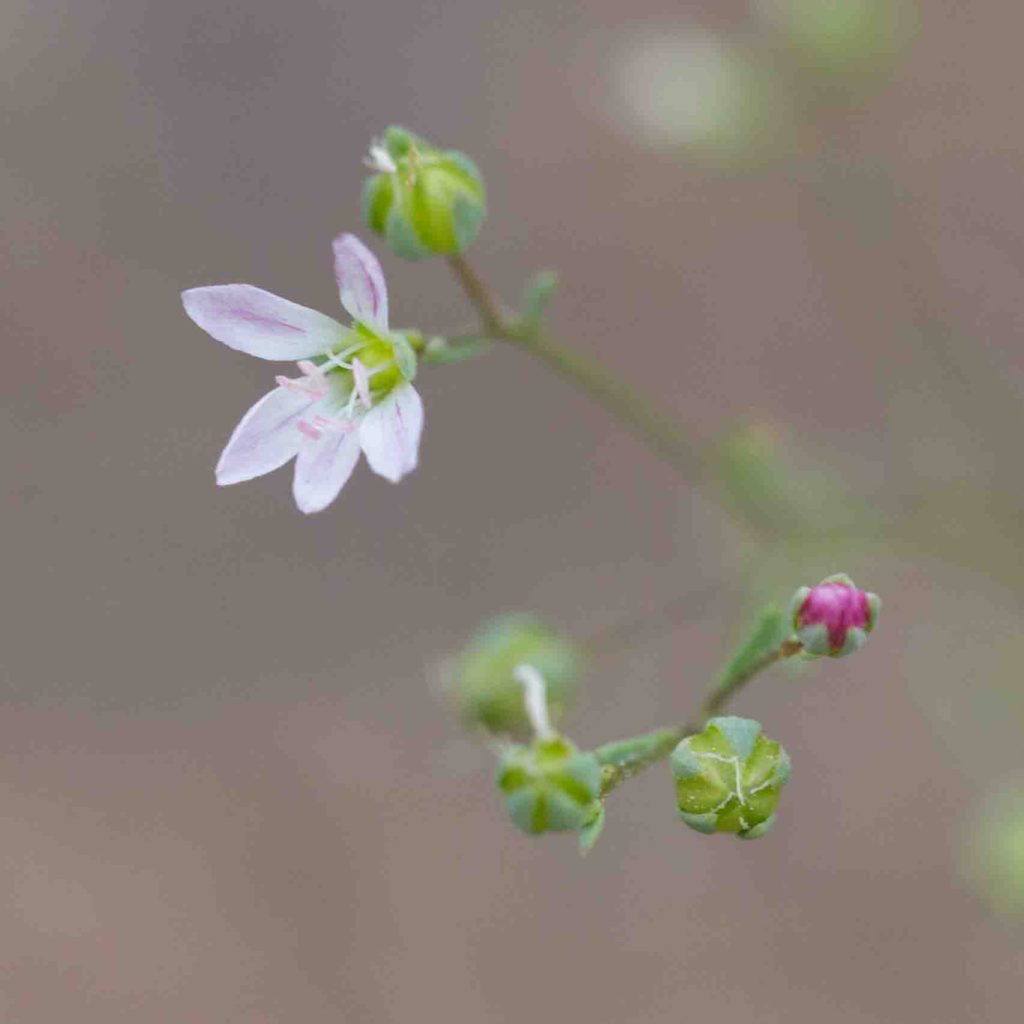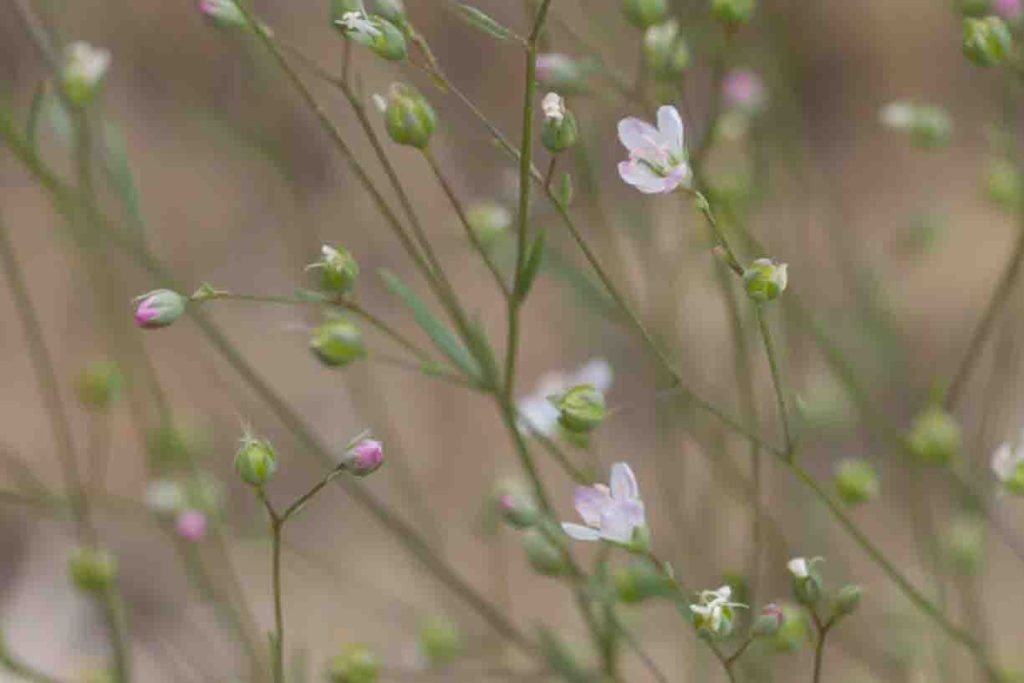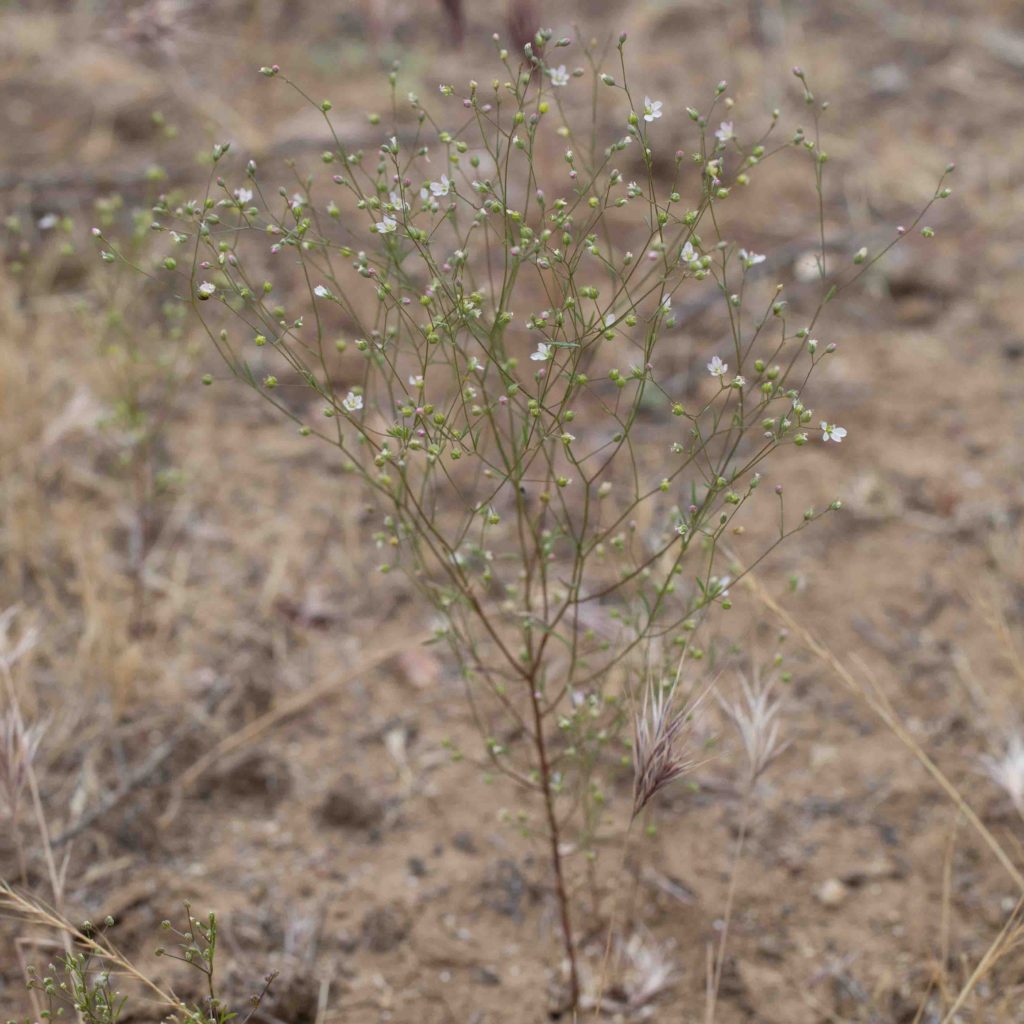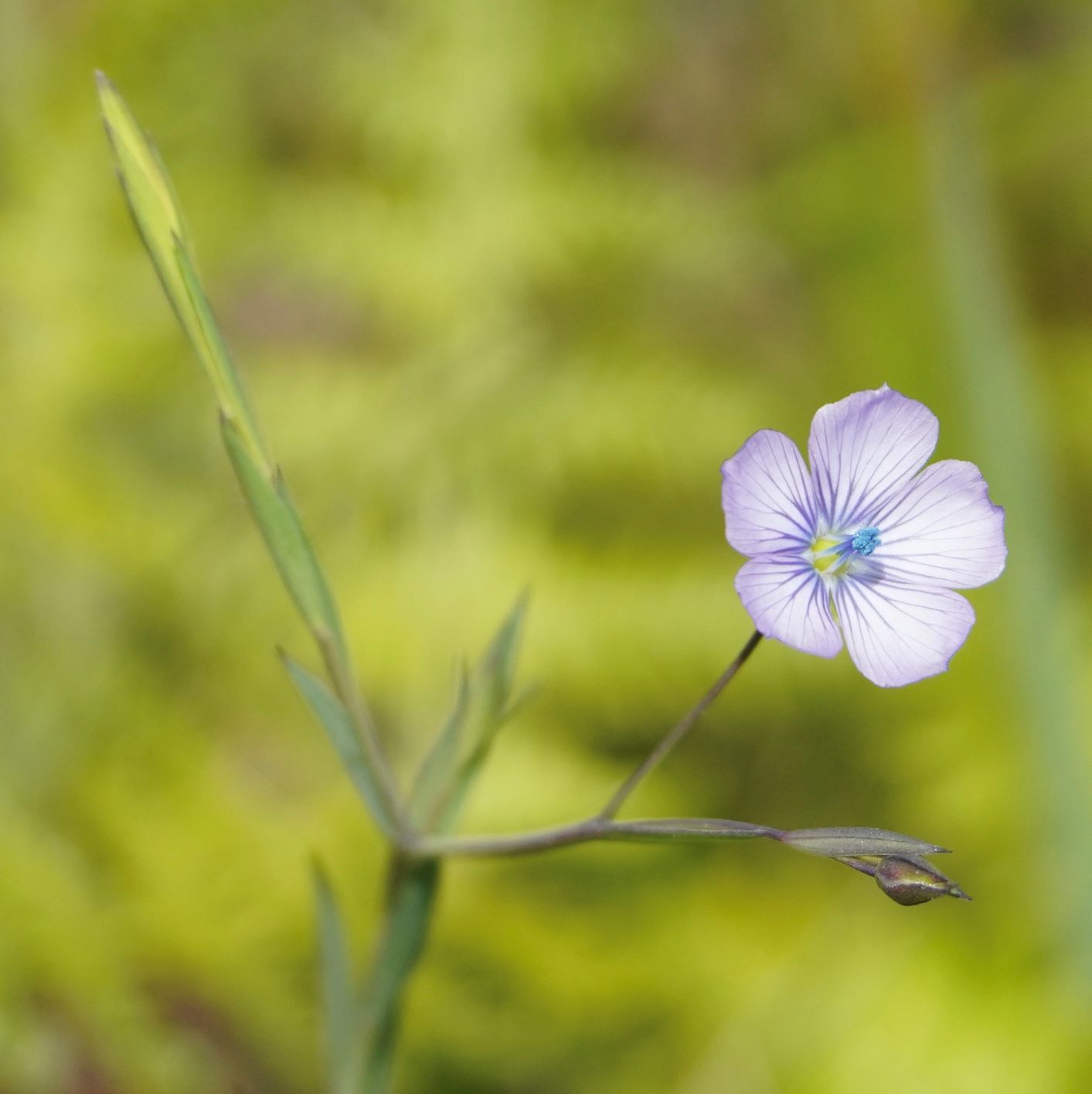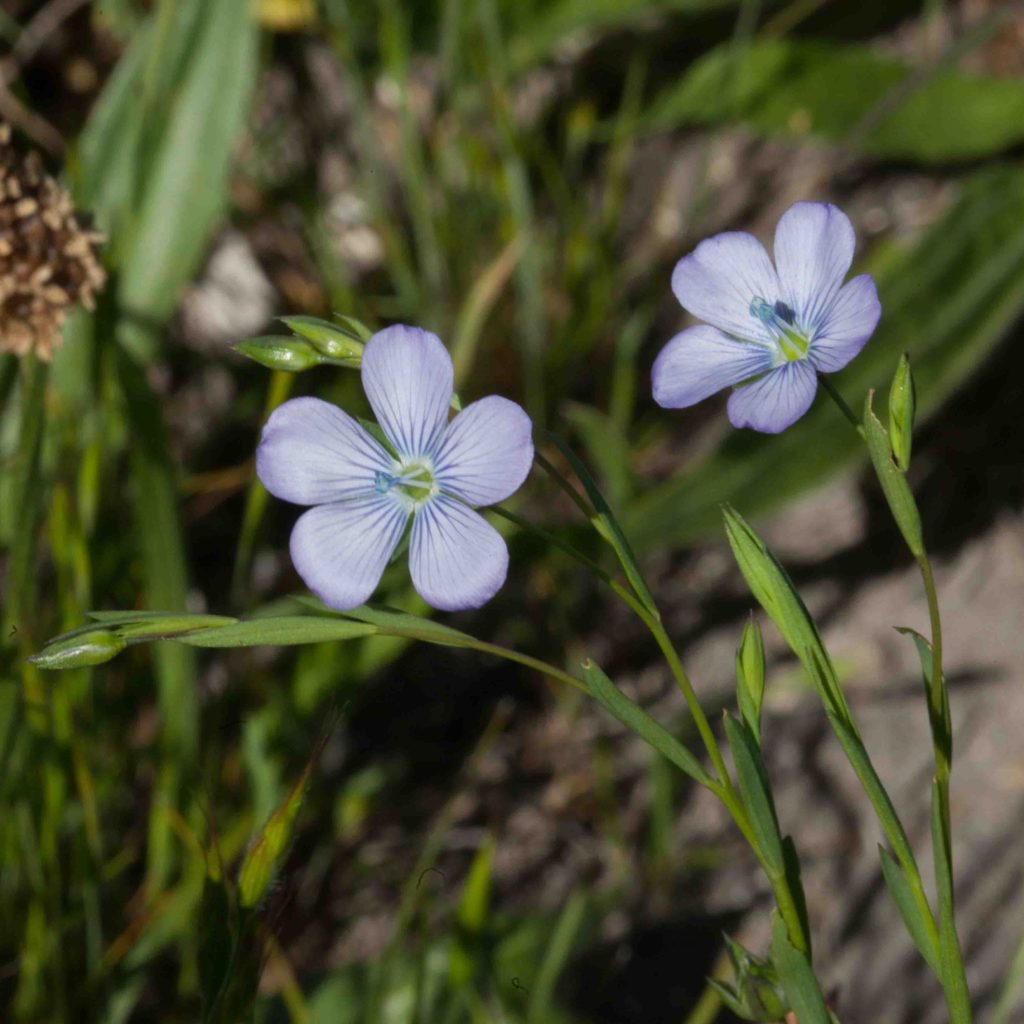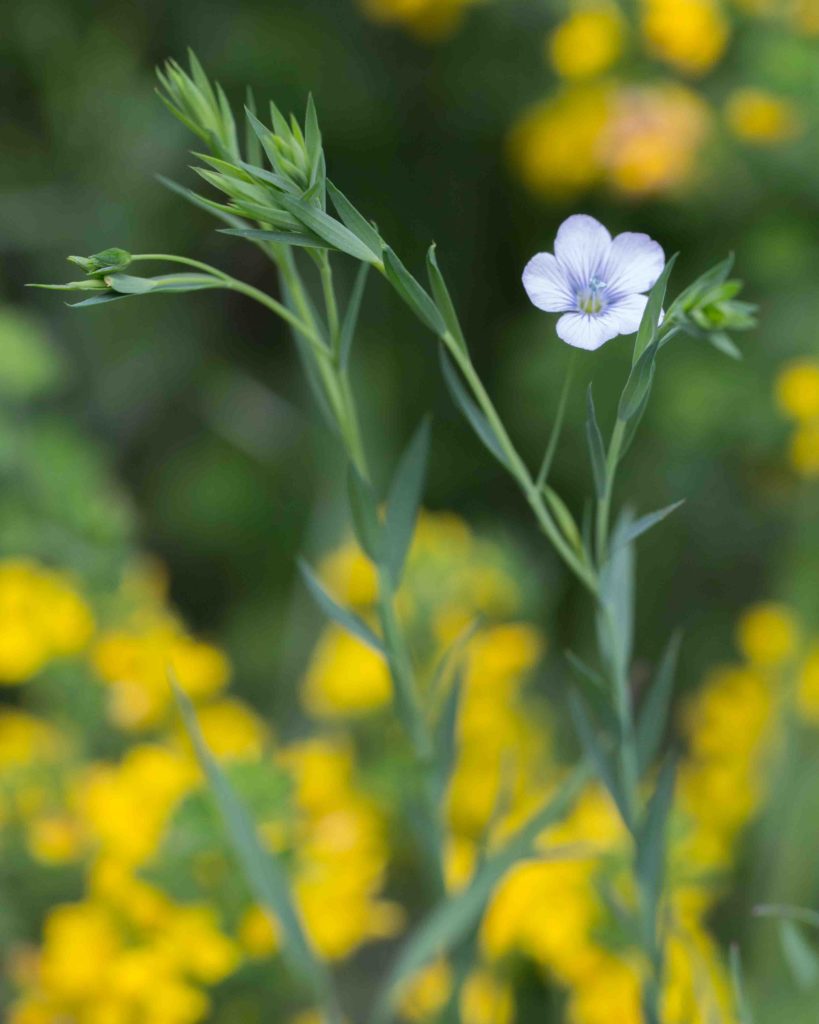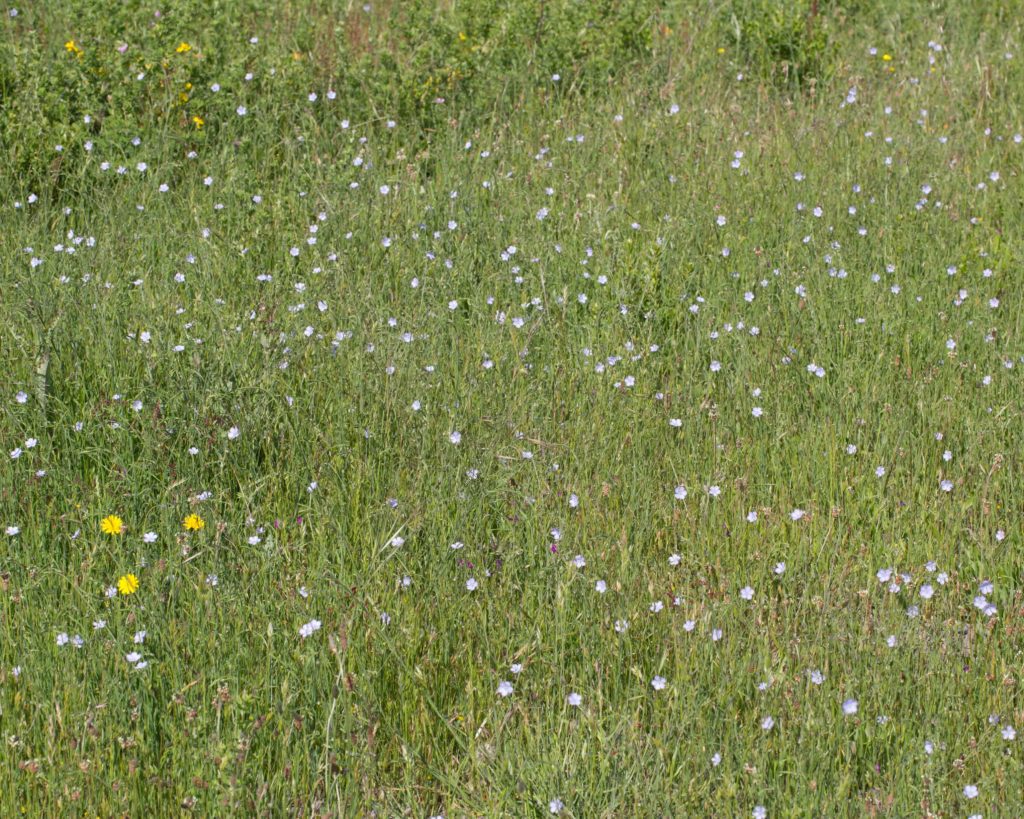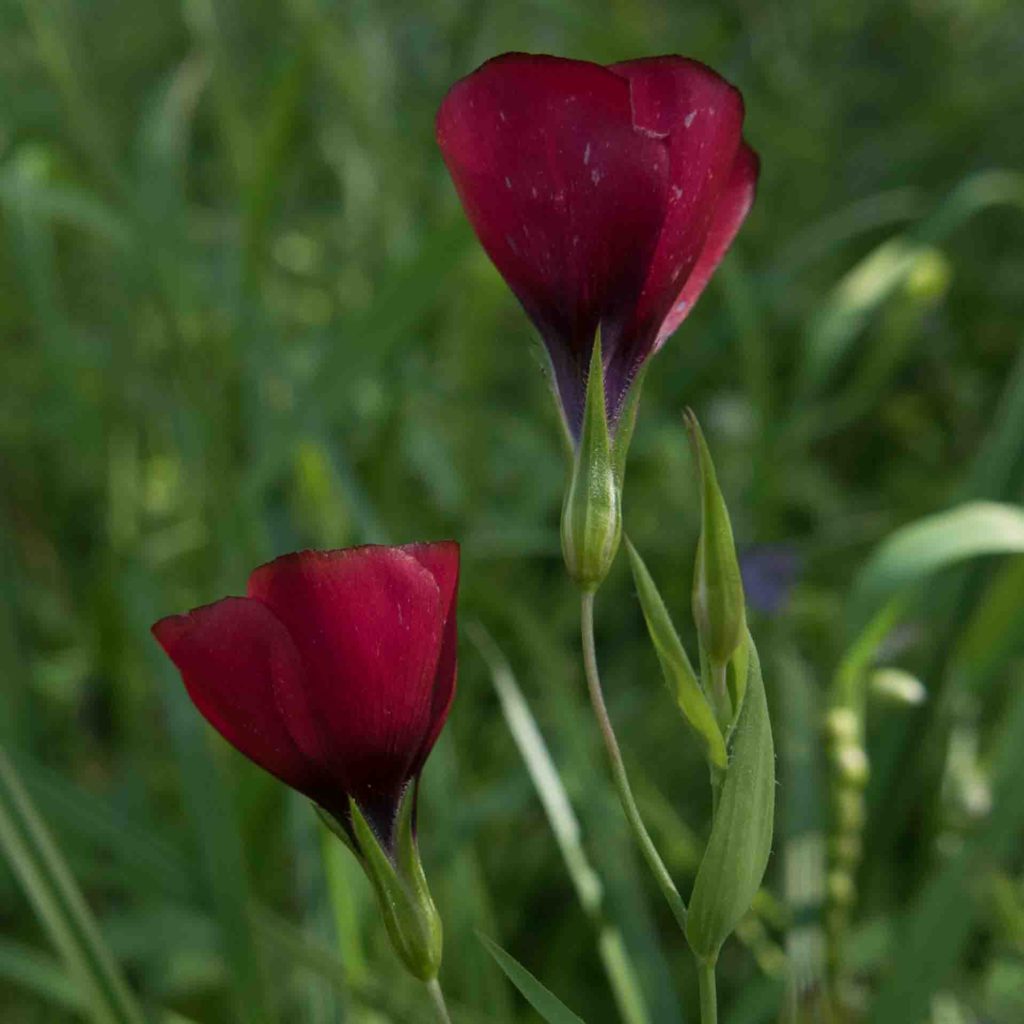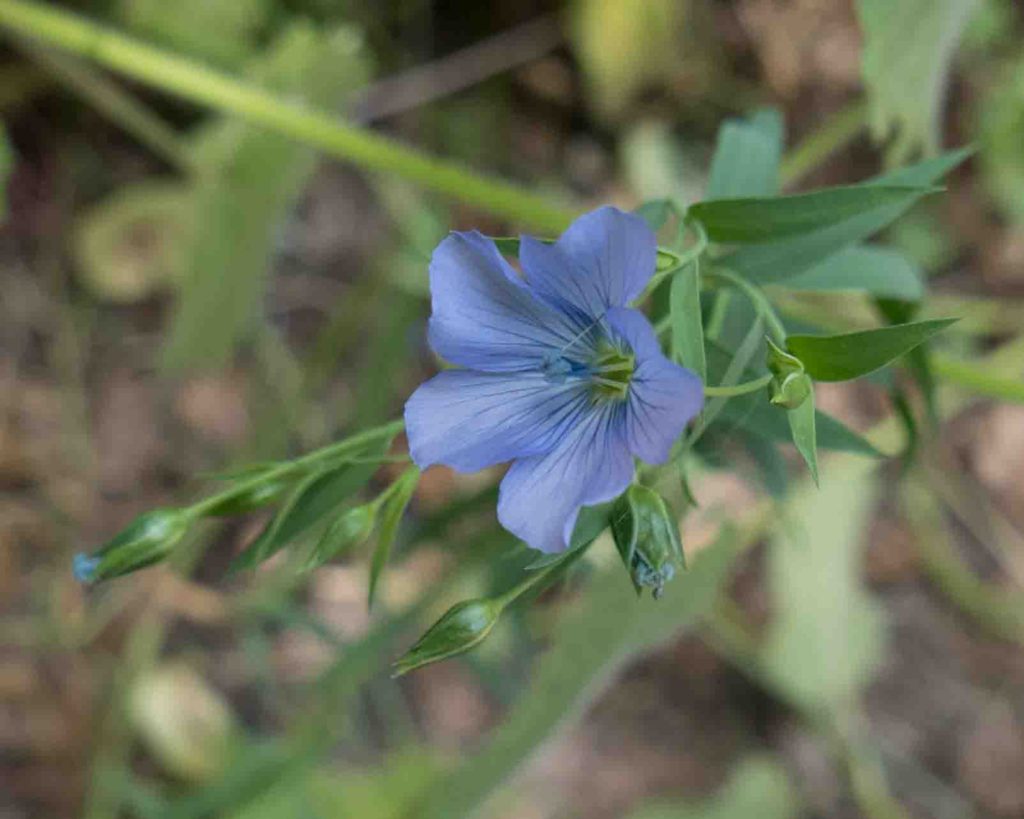Linaceae: Flax Family
Western Flax – Hesperolinon disjunctum
Blooms:
Apr–July
Plant Height:
10–40 cm
Flower Size:
Very small
Origin:
Native
Habitat:
Dry slopes on serpentine in the Diablo Range
Notes:
A small, delicate, much-branched plant. Its many small, pink-veined white flowers are borne on short pedicels (1–5 mm). Petals are 4–6 mm, widely spreading. Filaments and style are exserted.
Narrow-leaved Flax – Linum bienne
Blooms:
Mar–June
Plant Height:
20–100 cm
Flower Size:
Medium
Origin:
Eurasia
Habitat:
Grassy slopes near coast
Notes:
A delicate flower with white to pale blue petals, 6–10 mm long, sometimes found in profusion. The 5 stamens have conspicuous blue anthers, and meet at the tips. Pedicels are 5–18 mm long. Leaves are narrow, and appressed to the upper part of the stem. Photo #1 by CJH.
Red Flowering Flax – Linum grandiflorum
Blooms:
Apr–June
Plant Height:
20–50 cm
Flower Size:
Medium
Origin:
North Africa
Habitat:
Garden escape
Notes:
The bright red flower is unmistakably a flax (the flower in the first photo is not fully open). It is an occasional garden escape.
Common Flax – Linum usitatissimum
Blooms:
Apr–May
Plant Height:
20–100 cm
Flower Size:
Medium
Origin:
Eurasia
Habitat:
Garden escape
Notes:
Similar to Narrow-leaved Flax (Linum bienne, see above). However, it has darker blue and larger flowers, with petals 10–15 mm long. Sepals may be minutely hairy on the margins, and the style is elongated, linear to club-shaped. The 5 stamens have conspicuous blue anthers, and meet at the tips. This plant could be mistaken for the native Western Blue Flax (Linum lewisii, not shown), but it has sepals that are not hairy, and a stigma that is head-like rather than elongated.
